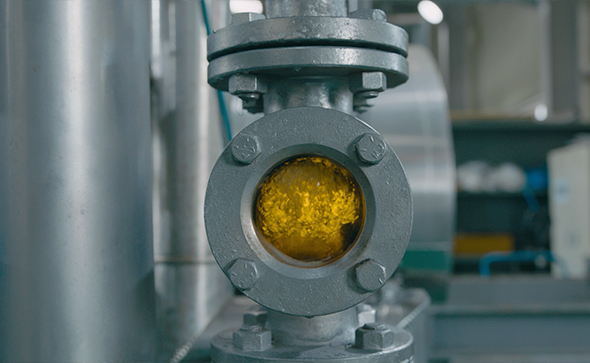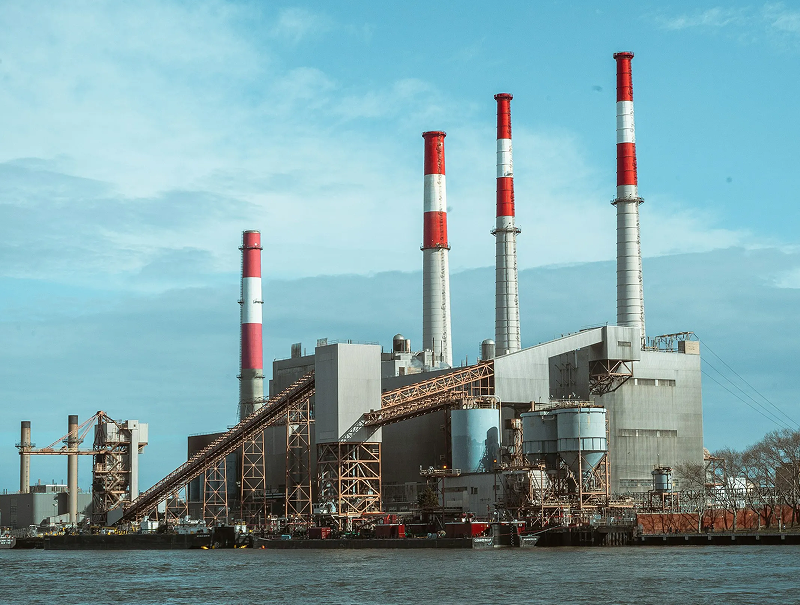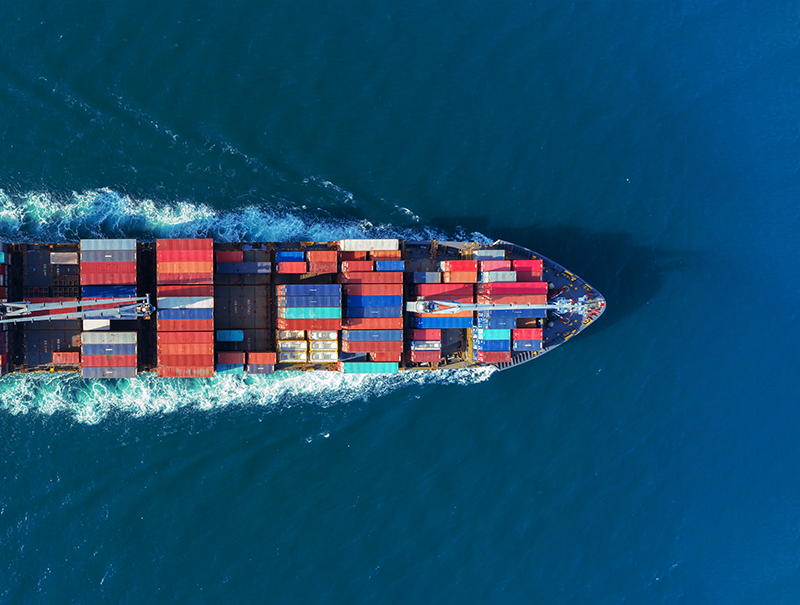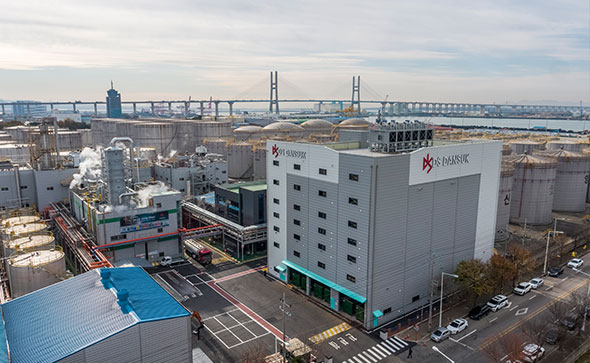An eco-friendly transportation fuel that contributes to improving air quality


Bio diesel is an eco-friendly renewable energy fuel that, unlike petroleum-based regular diesel, is made by synthesizing waste materials such as used cooking oil, food waste, and animal and vegetable oils. In Korea, bio diesel has been blended at 0.5% in vehicle diesel fuel since 2006 after an initial pilot supply, and the blending rate is increasing based on the 'Renewable Fuel Standard (RFS)'.
| Year | 2006~2007 | 2008 | 2009 | 2010~2015 | 2015~2017 | 2018~2021 | 2021~2023 | 2024~2026 | 2027~2029 | 2030 |
|---|---|---|---|---|---|---|---|---|---|---|
| Blending rate |
0.5% | 1.0% | 1.5% | 2.0% | 2.5% | 3.0% | 3.5% | 4.0% | 4.5% | 5.0% |
DS DANSUK has been manufacturing and supplying bio diesel that meets the quality standards of Korean oil refineries since 2007. We are also leading the export of bio diesel, based on registration with U.S. Environmental Protection Agency (EPA), California's Low Carbon Fuel Standard (LCFS) and Oregon's Clean Fuel Program (CFP), and EU ISCC certification.
Reduces greenhouse gas emissions and eliminates sulfur dioxides / Reduces harmful exhaust gas such as particulate matters and carbon monoxide / Biodegradable
Petroleum alternative fuel with fuel performance similar to diesel and excellent compatibility with diesel engines
Fuel for diesel vehicles and heavy construction equipment
Renewable energy as an alternative to fossil fuel generation

Bio heavy oil is an environmentally friendly energy source made from bio diesel process byproducts, low-grade oils, and industrial byproducts.
In accordance with the implementation of the 'Renewables Portfolio Standard (RPS)' in 2012, power generation companies with power generation capacity of 500MW or more are required to supply at least a certain percentage of their total power generation from renewable energy sources. (14.0% in 2025)
Accordingly, DS DANSUK's bio heavy oil is supplied to Korea Midland Power and Korea Southern Power as a substitute for heavy fuel oil (HFO, B-C grade) for the purpose of fulfilling the power generation companies' mandatory supply volume.
Compatible with B-C oil power generating facilities
Compared to B-C oil, reduces particulate matter by 28%, nitrogen oxides by 39%, greenhouse gas by 85%, and sulfur dioxides by 100%.
Thermal and industrial power generation facilities
Industrial boilers
Eco-friendly marine fuel with very low sulfur content

Bio marine fuel is an eco-friendly fuel that is a complete alternative to conventional B-C oil-based ships. DS DANSUK produces bio marine fuel from low-grade oil and industrial byproducts.
In particular, with the implementation of the International Maritime Organization's 'IMO 2020', regulations on sulfur content in marine fuels have been strengthened and the need for carbon reduction in the shipping industry has increased, bio marine fuel is gaining traction as an alternative.
Based on its bio marine fuel technology development, DS DANSUK is discussing quality standards with oil refineries and shipping companies. As the result, in June 2022, we exported bio marine fuel based on bio heavy oil for the first time in Korea, setting a global standard and securing competitiveness in the marine fuel market.
Able to supply various types of bio marine fuels, including proprietary bio marine fuel that complies with the international standard for marine fuels (ISO 8217) and EN 14124-compliant marine bio diesel blended with very low sulfur fuel oil(VLSFO)
Greenhouse gas reduction effect compared to conventional B-C oil when used as marine fuel applications
Marine fuel
Based on the production of sustainable aviation fuel (SAF)


Hydrotreated vegetable oil (HVO) is a biofuel produced after pretreatment and hydrotreatment of vegetable oils, and is gaining attention as a next-generation fuel such as sustainable aviation fuel (SAF) due to its excellent low-temperature fluidity.
DS DANSUK completed the HVO Pretreatment Unit in Pyeongtaek Plant #1 in 2024 and started producing HVO Pre-treated feedstock using waste cooking oil. HVO PTU is designed based on a global license and ensures high-quality feedstock.
DS DANSUK plans to build a SAF production base (Net-Zero Complex) in stages along with the supply of HVO Pre-treated feedstock.
Reduces solid impurities, metals, inorganic chlorine, nitrogen, and sulfur to extremely low levels
Sustainable aviation fuel, renewable diesel feedstock, etc.